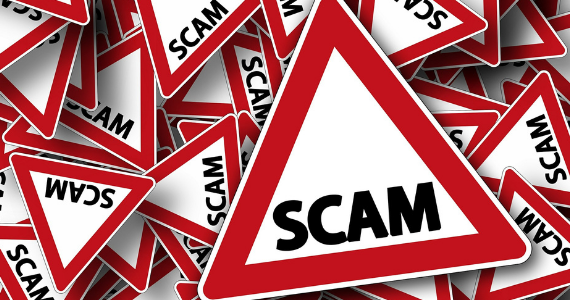If someone offers to withdraw your super or move it to a self-managed super fund (SMSF) so you can access the money, it’s probably a scam.
Learn how to spot a superannuation scam, and where to report it.

How to spot a super scam
Scammers can target you online, by phone or by email.
Signs of a super scam:
-
advertisements promoting early access to super
-
offers to ‘take control’ of your super
-
offers to invest your super in property
-
offers of quick and easy ways to access or ‘unlock’ super
Phishing scams for your super
Watch out for emails or calls requesting your personal or account details. Scammers may pretend to be a company you know, like your super fund, to steal your identity. They may then use this to transfer your super to an account they can access, like a fake SMSF.
Report a super scam
If you think you’ve been targeted by someone who is trying to access your super early, report it to:
-
ASIC — online complaint form
-
ATO — 13 10 20
Support after a scam
If a scam has caused you problems with debt, talk to a financial counsellor. They can help you get your finances back on track.
If you’ve been scammed and need someone to talk to, contact:
-
Lifeline — 13 11 14 or the online Crisis Support Chat
-
Beyond Blue — 1300 22 4636 or the Beyond Blue website
Protect yourself from super scams
There are some simple things you can do to protect yourself from super scams.
Know the rules about your super
Scammers will try to convince you that they can help you to get your super early. Knowing when you can legally get your super protects you from these kinds of scams.
See getting your super.
Check your balance and contact details
Regularly check your super balance by logging into your account through your super fund’s website. If something doesn’t look right, contact your super fund and ask them to explain.
Make sure your super fund has your correct mobile number, email and postal address. This will help them get in touch with you if there’s any suspicious activity on your account.
Take steps to stop identity theft
There are simple steps you can take to help stop someone stealing your identity — for example, shredding your documents, and being careful on social media. See identity theft.
Don’t deal with anyone who is not licensed
A scammer will not have a licence to set up or manage super funds. You can check if someone is licensed on ASIC’s website. Choose ‘Australian Financial Services Licensee’ in the drop-down menu when you search. You can also use APRA’s Disqualification Register to check whether someone has been disqualified.
Case Study
A scammer takes Jasmine’s super
Jasmine desperately wanted to pay off her debts by using the $30,000 she had in her super fund.
After seeing an ad online, she contacted Greg. Greg told her he could give her access to her super money. All she needed to do was sign some papers to transfer the money into his SMSF. In return, Greg would get 10% of Jasmine’s super balance.
Jasmine signed the money over. A few weeks later, she still hadn’t received the $27,000 from Greg. Then she got a call from the ATO. They told her she was up for a big tax bill because she had accessed her super early.
She also got a call from an ASIC investigator, asking her about Greg. They told her that other people had made complaints to ASIC about Greg.
Jasmine found out that Greg was a scammer and had withdrawn all her money. He was running the SMSF as a scam to fund his gambling problem. Since Greg was already bankrupt, there is little chance Jasmine will ever get her money back.
If you think you have been scammed a financial adviser can help. Call us if you would like to discuss further on 02 4342 1888.
Source: moneysmart.gov.au
Reproduced with the permission of ASIC’s MoneySmart Team. This article was originally published at https://moneysmart.gov.au/how-super-works/superannuation-scams
Important note: This provides general information and hasn’t taken your circumstances into account. It’s important to consider your particular circumstances before deciding what’s right for you. Although the information is from sources considered reliable, we do not guarantee that it is accurate or complete. You should not rely upon it and should seek qualified advice before making any investment decision. Except where liability under any statute cannot be excluded, we do not accept any liability (whether under contract, tort or otherwise) for any resulting loss or damage of the reader or any other person. Past performance is not a reliable guide to future returns.
Important
Any information provided by the author detailed above is separate and external to our business and our Licensee. Neither our business nor our Licensee takes any responsibility for any action or any service provided by the author. Any links have been provided with permission for information purposes only and will take you to external websites, which are not connected to our company in any way. Note: Our company does not endorse and is not responsible for the accuracy of the contents/information contained within the linked site(s) accessible from this page.



